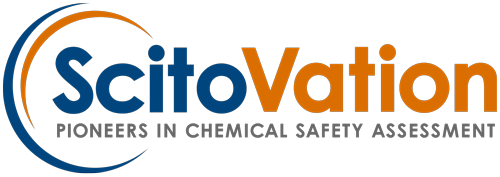Artificial Intelligence (AI) is impacting all types of work, including toxicology. Dr Hartung will discuss how to move toxicology to a more holistic and integrated paradigm using AI and how AI plays a role in setting the direction of “Toxicology for the 21st Century 2.0” in future decades.
What you’ll learn:
- Sources of Big Data for toxicology and various AI use areas; problems to be solved
- State of the art and new trends
Watch the Recording
Thomas Hartung, MD PhD, is the Doerenkamp-Zbinden-Chair for Evidence-based Toxicology in the Department of Environmental Health and Engineering at Johns Hopkins Bloomberg School of Public Health and the Whiting School of Engineering, Baltimore. He also holds a joint appointment for Molecular Microbiology and Immunology at the Bloomberg School. He is adjunct affiliate professor at Georgetown University, Washington D.C.. In addition, he holds a joint appointment as Professor for Pharmacology and Toxicology at University of Konstanz, Germany; he also is Director of Centers for Alternatives to Animal Testing (CAAT, http://caat.jhsph.edu) of both universities. CAAT hosts the secretariat of the Evidence-based Toxicology Collaboration (http://www.ebtox.org) and manages collaborative programs on Good Read-Across Practice, Good Cell Culture Practice, Green Toxicology, Developmental Neurotoxicity, Developmental Immunotoxicity, Microphysiological Systems and Refinement. As PI, he headed the Human Toxome project funded as an NIH Transformative Research Grant and the series of annual Microphysiological Systems World Summits starting in 2022 by now 90+ organizations. He is Field Chief Editor of Frontiers in Artificial Intelligence. He is the former Head of the European Commission’s Center for the Validation of Alternative Methods (ECVAM), Ispra, Italy, and has authored more than 650 scientific publications with more than 44,000 citations (h-index 111). His toxicology classes on COURSERA had almost 18,000 active learners.
Abstract:
The 2007 NAS report on Toxicity Testing for the 21st Century was a watershed moment for toxicology. Since then, the discussion is no longer whether to change but how and how fast? With knowledge in the life sciences doubling every 3-4 years, we now have sixteen times more understanding and actually a number of disruptive technologies have evolved, which were not anticipated in the report, such as Microphysiological Systems (MPS) and Machine Learning, aka Artificial Intelligence (AI). In order to embrace these developments and move toxicology to a more wholistic and integrated paradigm, the Basic Research Office of the Office of the Under Secretary of Defense for Research and Engineering, OUSD(R&E), hosted a Future Directions workshop Advancing the Next Scientific Revolution in Toxicology on April 28-29, 2022, at the Basic Research Innovation Collaboration Center (BRICC), in Arlington, VA. A vanguard of scientific and technical experts and agency observers developed a report, laying out how recent developments can be embraced and set the direction of “Toxicology for the 21st Century 2.0” in the next decades.
Computational approaches, especially AI, play a key role here:
- A central role of Exposomics to change to more exposure-driven toxicology, with AI enabling us to make sense of ~omics (big) data
- Predictive toxicology through automated read-across such as read-across-based structure-activity relationships (RASAR)
- The computational modeling of in vitro tests and MPS
- Digital pathology through image analysis
- Information extraction by Natural Language Processing of scientific literature and the grey information of the internet as well as curated databases of legacy data
- Evidence integration of different evidence streams allows probabilistic risk assessment
The EU project ONTOX is working toward the implementation of some of these goals.
About ScitoVation:
ScitoVation helps clients assess chemical compound safety using innovative science, next-generation technology, and professional expertise. ScitoVation is known for partnership, flexibility, and proven success in its work to develop safer and more effective pharmaceuticals, food ingredients, agricultural chemicals, commodity chemicals and consumer products. A spin-off of the former The CIIT and The Hammer Institutes for Chemical & Drug Safety Sciences, ScitoVation is an industry leader of New Approach Methods (NAMS) for chemical/drug discovery & development in the rapidly evolving global regulatory landscape.
